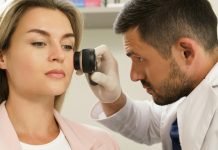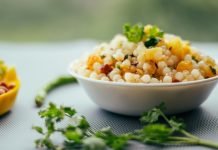
What’s Going On Inside Us?
Did you know that trillions of tiny creatures live inside your belly? These are bacteria, and they’re part of something called the gut microbiome.
This might sound a bit scary, but it’s perfectly normal. In fact, these little critters are super important for our health.
However, a recent study has found that some types of these bacteria might be linked to the growth of harmful lumps in our guts, which could turn into cancer.
What’s This New Study About?
A team of doctors and scientists from Mass General Brigham has been looking closely at these gut bacteria.
They wanted to see if there was any connection between certain bacteria and the growth of something called colon polyps.
Colon polyps are small lumps that grow on the inside lining of the colon, which is a part of our gut. Most of these polyps are harmless, but some can turn into cancer.
The team’s results are now published in the journal Cell Host & Microbe.
What is Colorectal Cancer?
Colorectal cancer is a type of cancer that starts in the colon or the rectum. It’s the second leading cause of death from cancer in the U.S.
And what’s even more worrying is that more and more young adults are getting this type of cancer. Nearly all colorectal cancers start as colon polyps.
So, if we could stop these polyps from growing in the first place, we could save a lot of lives.
Different Types of Polyps
There are different types of polyps. The two main ones are called tubular adenomas and sessile serrated polyps.
Many things can increase your risk of getting these polyps, like eating too much red and processed meat, not exercising enough, smoking, drinking alcohol, and being overweight.
These factors can also change the types of bacteria that live in our gut.
The Experiment
To find out more, the research team studied data from 1,200 people who were having colonoscopies. This is a medical test where a small camera is used to look inside the colon.
The team collected information about the patients’ health, diet, lifestyle, and medications. They also studied stool samples from the patients to find out which bacteria were living in their guts.
What Did They Discover?
The team found out that different types of bacteria were living in the guts of people with different types of polyps.
For example, the guts of people with tubular adenomas had 19 bacterial species that were different from those in other people. And the guts of people with sessile serrated polyps had 8 different bacterial species.
What Does This Mean?
This research is super exciting! It means we might be able to change our gut bacteria to reduce our risk of getting colon cancer.
For example, we could eat certain foods or take special medicines to change the types of bacteria in our guts.
We could also use this information to create new ways of testing people for colon cancer.
What’s Next?
The researchers now want to study these bacteria even more closely in the lab. They want to find out if they can change these bacteria and stop polyps from growing.
If they can, it would be a huge step forward in the fight against colon cancer!
Remember, this is still early research, and there’s a lot more to learn. But every discovery brings us one step closer to understanding more about our amazing bodies and the tiny creatures that live inside us.
If you care about cancer, please read studies that a low-carb diet could increase overall cancer risk, and vitamin D supplements could strongly reduce cancer death.
For more information about health, please see recent studies about how drinking milk affects the risks of heart disease and cancer and results showing higher intake of dairy foods linked to higher prostate cancer risk.
The study was published in Cell Host & Microbe.
Copyright © 2023 Knowridge Science Report. All rights reserved.




